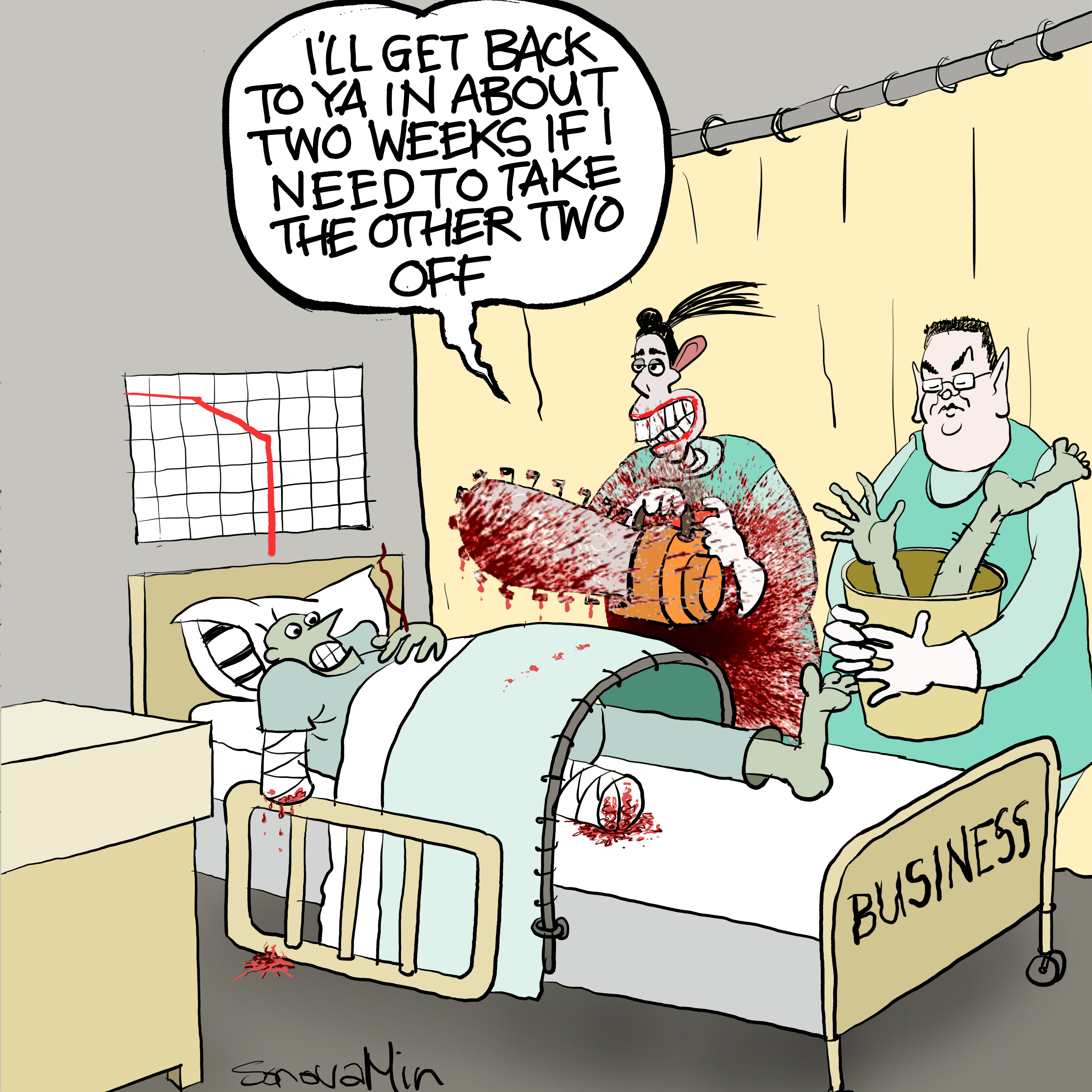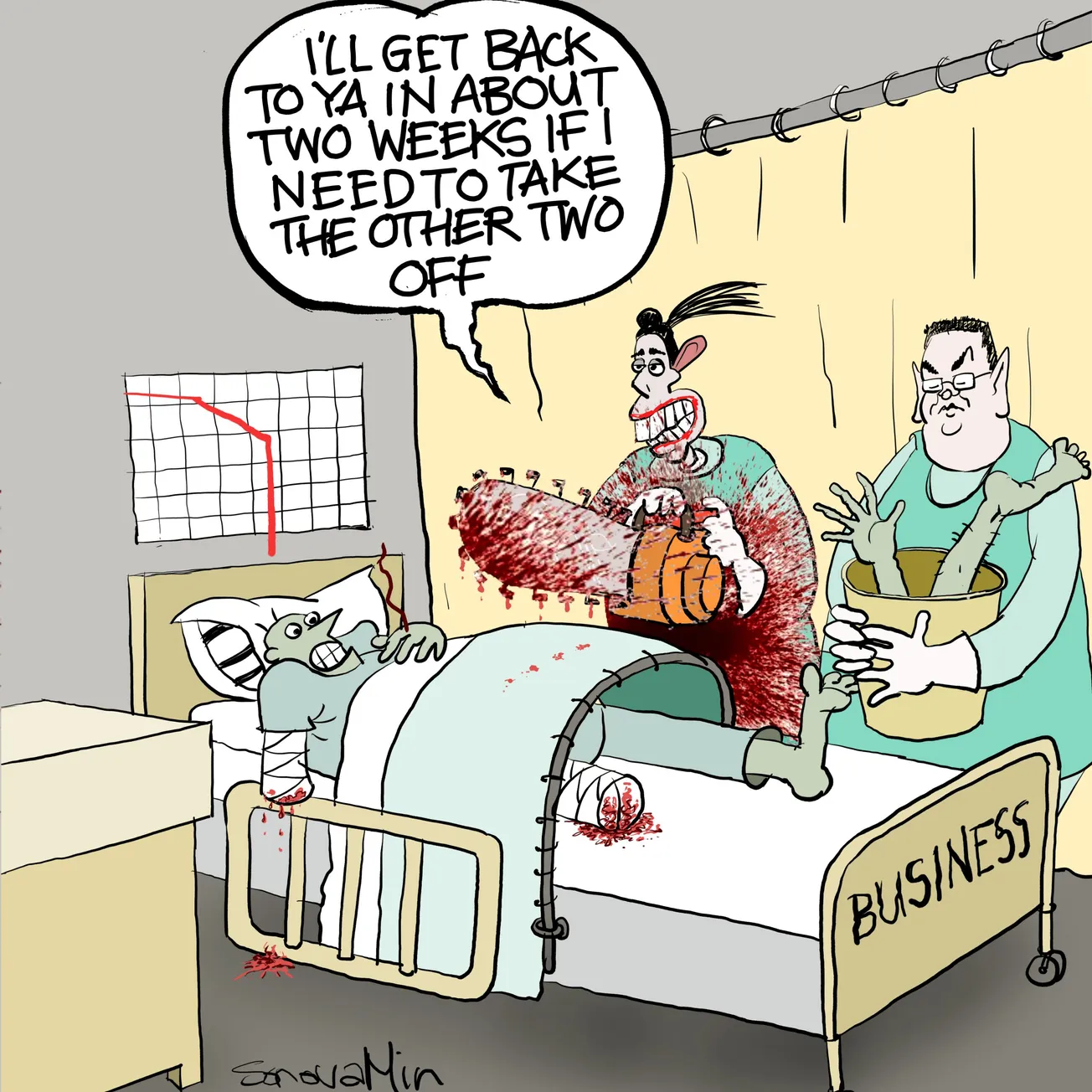Table of Contents
Governments – all governments – operate at such a high level, that when they try to design a package specifically to aid small business, they almost inevitably fail miserably. The intentions are always good, but those that usually work at the macro level always struggle with looking at things from a micro perspective. And unfortunately, the government’s latest package, intended to help small business survive the ravages of COVID-19, is no different. I would gladly be proved wrong, but I can’t see how it is going to help small businesses at all.
First, let us look at the main proposals in the government’s package:
1. The government has approved a tax loss carry-back scheme that will allow businesses to access their previous tax payments as cash refunds. A forecast loss in the current financial year can be offset against the tax paid on a profit from last year.
2. Changes to tax loss continuity rules would make it easier for firms to raise new capital without losing their existing tax losses, and that would save business an estimated $60m annually.
3. Inland Revenue would also be given greater flexibility for dealing with businesses affected by COVID-19, which might include extending deadlines for filing tax returns and paying provisional and terminal tax for up to 18 months.
4. The Government has extended the notice required for the cancellation of commercial leases, mortgagee sales or repossession of properties. Landlords will have to give 30 days notice to cancel a lease, up from the current 10 days.
5. Over the next 12 months the Government will also pour $25m into free specialist advice for SMEs.
Let’s deal with the easy ones first. More money into business advisory services and more flexibility from IRD are a given at a time like this, although as the guidelines for IRD are not definitive (not yet at least), this just means they will have discretion to reduce penalties and interest, or to defer tax payments. They have that discretion now, and in my experience, it is applied sparingly. I hope this means that IRD will drop their ‘blood out of a stone’ attitude to businesses that cannot pay their taxes, as the IRD is the institution most often responsible for forcing businesses to the wall.
Regarding commercial leases, increasing the notice required for the cancellation of a commercial lease from 10 days to 30 days is inconsequential, but it is unlikely that commercial landlords will be turning out their tenants in droves. There is no long queue of people wanting to sign up to commercial leases at the moment.
Changes to tax loss carry forward schemes are a bit more meaningful. At the moment, for a company to carry a loss forward into a future financial year, there must be a 49% shareholder continuity. This could be useful for some businesses looking to bring in new shareholders to give the business a cash injection, meaning they could sell 50% or more of the shares to a new shareholder without losing tax losses. But it is questionable how many businesses will be able to take advantage of the rule change, particularly at the moment. Also, it is not a cash benefit. It is a benefit for some time in the future. The cash injection comes from someone prepared to take a risk. The government is giving away very little.
So, let’s talk about the loss carry-back provisions. At the moment, any business making a loss can carry that loss forward to a future period. Now the government is proposing that they will be able to carry the loss back to a prior period, and offset it against that period’s profit, and get a tax refund as a result. On the face of it, this sounds good, but let us delve a little deeper. As tax law is almost never applied retrospectively, I assume that it will not apply to the tax year ended March 2019. So, if you made a profit in the year to March 2020, and have paid your taxes on it, then if you are forecasting a loss for the March 2021 year, you can apply to have those taxes refunded.
Yeah?
Who exactly would like to do a forecast right now for how a business is going to perform in the year to March 2021? It is only April now. We are still in lockdown, and do not even know if we will be coming out of lockdown next week. Forecasting is pie in the sky at the best of times, but right at the moment, it is the stuff of fairy tales. No one knows how they will fare for the next 6 months. Those in the travel industry probably have a fair idea, but even they cannot be absolutely sure because with international travel being just about at a standstill, locals may decide to travel within New Zealand and this may pick up the slack. Or not. No one knows.
Also, the lockdown didn’t happen here until the last week of March, which, coincidentally was also the last week of the financial year. Many businesses will have made a profit for the March 2020 year, and that profit will have tax payable on it. So, they will owe tax until they are fairly sure that they are going to make a loss for the year ended March 2021, and that loss will have to be quantified, although God knows how. But businesses need help now, not in 6 months or a year’s time. And if a loss is forecast now but it doesn’t turn out to be as bad as expected, will this mean penalties and interest on refunded taxes?
The best business to be in right now is crystal ball manufacture.
What about smaller businesses that take out all their profits in salaries for operators? They will still owe tax on their earnings. Can they get refunds too?
This $3 billion package looks to me to be nothing more than tinkering around the edges, creating possible benefits in future years, but little or nothing for business right now. A drop in tax rates would have been much more beneficial, or maybe cash payments to businesses, as they have done in Australia. The main thing I am advising clients to do now is to not pay their final provisional tax payment for the 2020 year, due on 7th May. Most people cannot pay it anyway, and if it turns out the payment was needed, we can always throw ourselves on the mercy of the IRD. But most people will not know for months if they should have made that payment or not. It will be a long time before they will really know how bad, or how good, the 2021 year really is.
Grant Robertson has promised there is more help to come. I really hope that there is some real help coming for business, not just a bit of tinkering here and there. These changes, while well-intentioned, will do nothing for the cafe forced to close for a month (so far), or the greengrocer that had to throw away all his stock a few weeks ago because his business was not deemed ‘essential’. What use is a loss carry-back to them right now? They need real help, not a bit of tinkering by people who have never been in business or have never worked in the real world. Even with an agreed 20% pay cut for MPs, this package demonstrates how very little they understand about how the real world operates.
Grant Robertson says he is not prepared to allow unemployment of 20%, as predicted by one of Treasury’s scenarios. Sorry, Grant. If you really want to stop that from happening, you are going to have to do better than this.

If you enjoyed this BFD article please consider sharing it with your friends.









